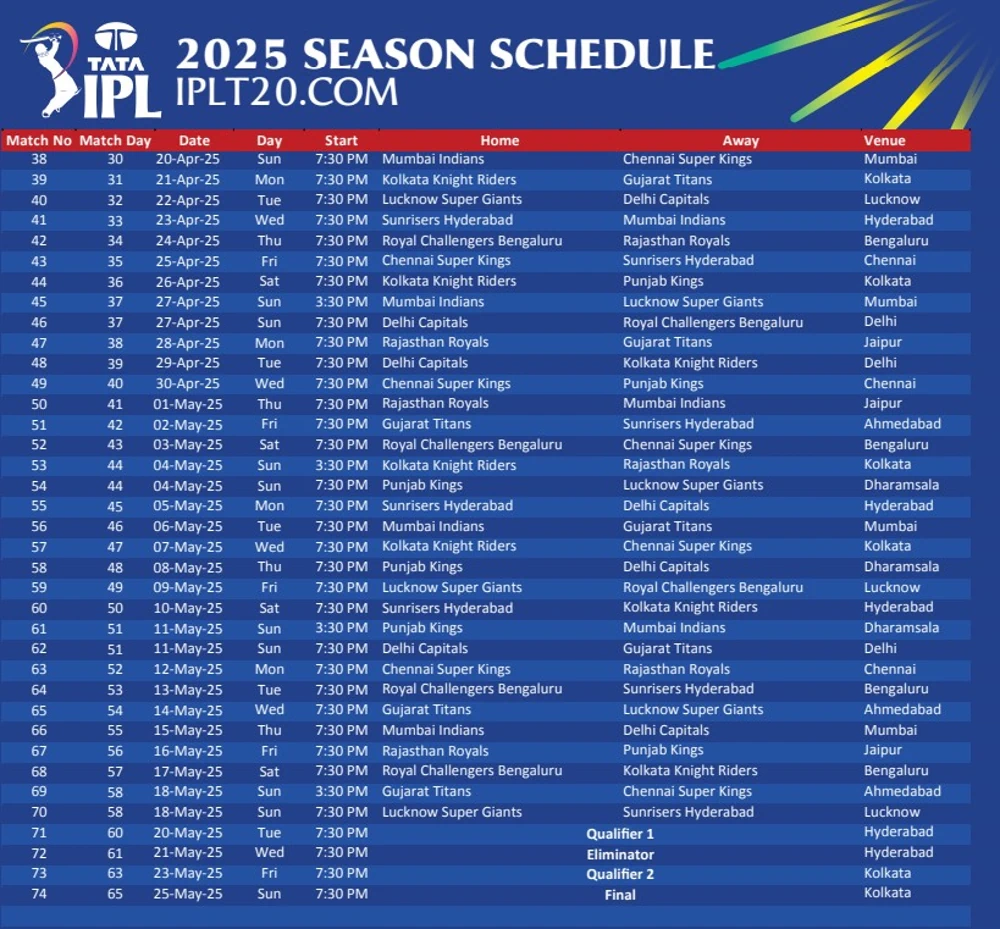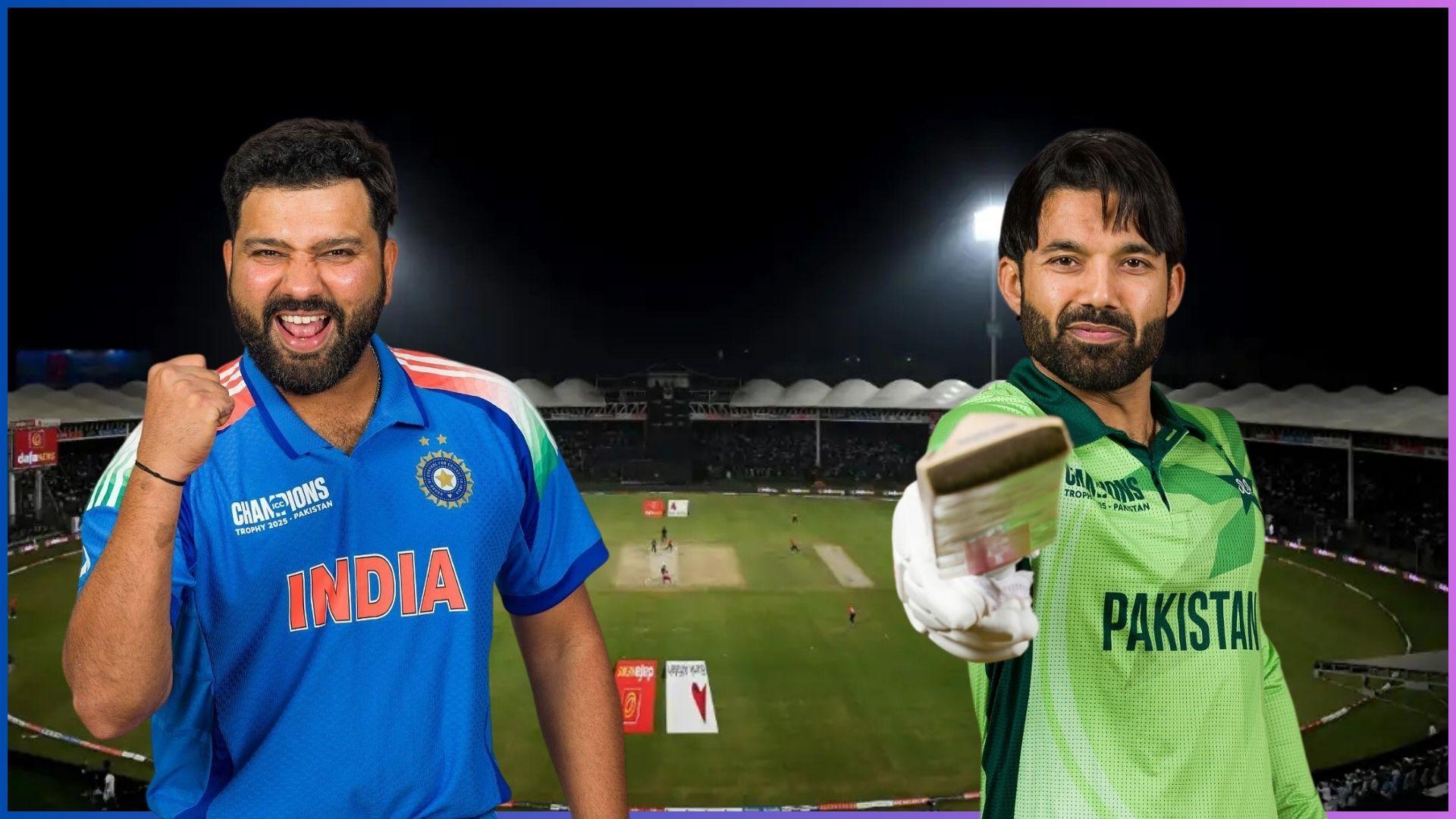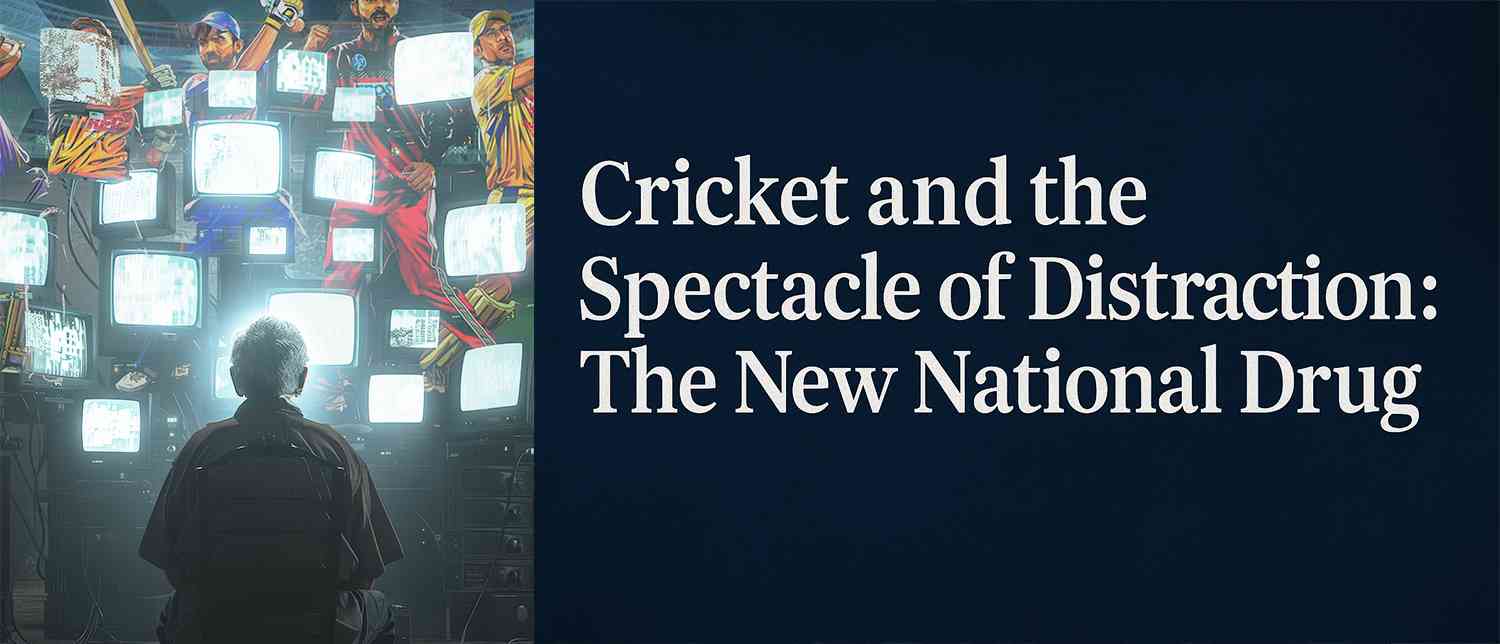There was a time when cricket in India was about sporting excellence - about mastery, teamwork, and an unscripted drama that bound a diverse country together. But today, cricket has mutated into something altogether more calculated. It is no longer just a game. It is a weapon of mass distraction - a meticulously packaged performance that operates as a kind of collective sedative, numbing public scrutiny while crises unfold quietly in the background.

Take a moment to observe the machinery around the sport. The Board of Control for Cricket in India (BCCI) is not only the wealthiest cricket board in the world - it effectively operates as a parallel economy. Yet this financial impunity is rarely questioned in the mainstream, largely because cricket functions as a national distraction engine - a 24/7 emotional treadmill designed to keep the masses entertained, if not pacified. The sheer volume of matches across formats - IPL, bilateral series, Asia Cups, World Cups, and now the constant addition of new T20 leagues - ensures that there is scarcely a day when cricket is not the top story on news feeds and social timelines. This saturation is not incidental. It is strategic.

One must ask why is the public encouraged to invest so heavily in every match, every wicket, and every manufactured rivalry, especially the India-Pakistan one? Because it is politically convenient. Few things inflame national passions as reliably as a cricket match against Pakistan. It is a spectacle of ultra-nationalism disguised as sport, and it often unfolds precisely when inconvenient truths need to be buried.
Consider recent events - four terrorists remain unaccounted for following an armed encounter near Pahalgam in Jammu and Kashmir, a region already scarred by conflict and ambiguity. Operation Sindoor happens, we as a nation leave everthing and support the forces, as we should. It seems like India is on the verge of teaching Pakistan another lesson for the ages, when suddenly, out of nowhere, US President Donald Trump declares "Ceasefire", and bizarrely claims credit for it. Our own govt confirms it in the subsequent hours. What a shameful thing for the nation, especially since we all collectively witnessed how much global influence India has lost as we fail to convince or veto IMF giving Billions to Pakistan as the war rages on. Trump has gone on to say that five Indian jets had been brought down - a claim unsupported by any official statement from either side. The Indian government, characteristically, has chosen silence. No clarifications. No transparency. No press conferences. Opposition has been trying to bring this to notice in the Parliament, but the majority of the nation seems to have moved on to pop culture trends and some other inflamed social issue.
.jpg?$p=85a2632&f=4x3&w=1080&q=0.8)
During Op Sindoor, we banned Youtube channels and instagram celebrities from Pakistan. We effectively have no trade with Pakistan. But no matter - India is playing Pakistan on the 14th of Sep. The news cycles will be hijacked by pre-match build-up, expert panels, celebrity predictions, and high-decibel advertisements, as the braindead citizens will be frothing at the mouth over uber-nationalistic pride pumped through hate-filled vitriol, islamophobia and tasteless memes. All this while uncomfortable questions about security lapses, diplomatic chaos, and international credibility go unanswered, the nation chants slogans, waves flags, and celebrates sixes. This is not patriotism. This is performative nationalism wrapped in entertainment. This is the art of distraction. And anyone who watches Cricket, in my opinion, is squarely to blame for it.

It is worth remembering that this kind of state-enabled spectacle is not unique to India. The Roman Empire pacified its people with “bread and circuses” - free grain and gladiatorial contests. Modern India does something similar. While the price of food, fuel, and freedom quietly climbs, the people are given tournaments, fanfare, and a convenient enemy in the form of a neighbouring cricket team. What should concern us is that this tactic works - repeatedly, effortlessly.

Cricket itself is not to blame. It remains a beautiful sport, and one that holds deep cultural significance for millions. But the way it is now weaponised as a form of psychological control should worry us. When citizens are emotionally exhausted from economic hardship, political polarisation, and relentless propaganda, cricket becomes a refuge - a place where people can forget. But when forgetting becomes habitual, it turns into complicity. We are not saying don’t watch cricket. Watch it. Celebrate it. But don’t let it replace critical thought. Don’t let it be the reason you ignore the government’s silence, or the media’s compliance. Don’t let your identity as a fan override your role as a citizen. Because when the applause dies down and the lights of the stadium go off, what will remain are the unanswered questions - the missing terrorists, the foreign leaders meddling in national affairs, the unpaid taxes, and the creeping erosion of transparency. And perhaps, in the midst of all this, the greatest tragedy is that so many of us will still choose to look away - and watch the next match.
*The views expressed in this article are personal. They do not reflect the opinions, beliefs, or positions of Vygr and Vygr Media Private Limited.


























